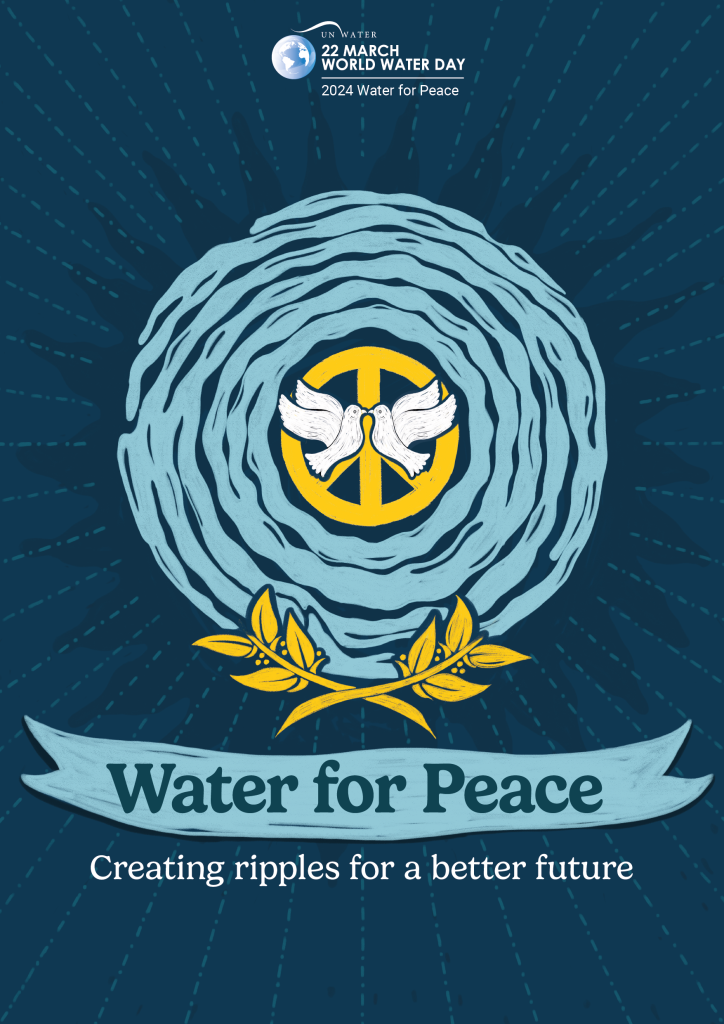
Every year, World Water Day (22 March) raises awareness and inspires action to tackle the water and sanitation crisis. It is a United Nations observance, coordinated by UN-Water and led by one or more UN-Water Members and Partners with a related mandate.
The theme is proposed in advance by UN-Water and is aligned with the annual publication of the UN World Water Development Report, published by UNESCO on behalf of UN-Water, with its production coordinated by the UNESCO World Water Assessment Programme (WWAP).
In 2024, the theme of World Water Day is ‘Leveraging water for peace’ and the name of the World Water Development Report is ‘Leveraging Water for Peace and Prosperity’. The World Water Day campaign is simply called ‘Water for Peace.’
‘Water for Peace’ explained
Water can create peace or spark conflict.
When water is scarce or polluted, or when people have unequal or no access, tensions can rise between communities and countries.
More than 3 billion people worldwide depend on water that crosses national borders. Yet, out of 153 countries that share rivers, lakes and aquifers with their neighbours, only 24 countries report having cooperation agreements for all their shared water.
As climate change impacts increase, there is an urgent need, within and between countries, to unite around protecting and conserving our most precious resource.
As populations grow, water will become increasingly important in the fight against poverty and the deterioration of the environment.
Cooperation on water can build vital resilience to extreme weather events and help populations to mitigate and adapt to a changing climate.
Public health and prosperity, food and energy systems, economic productivity and environmental integrity all rely on a well-functioning and equitably managed water cycle.
This means that non-discrimination and equality in ensuring access to water and sanitation can have a positive ripple effect across society.
Peaceful cooperation around water can flow into peaceful cooperation in all sectors.
By working together to balance everyone’s human rights and needs, water can be a stabilizing force and a catalyst for sustainable development


